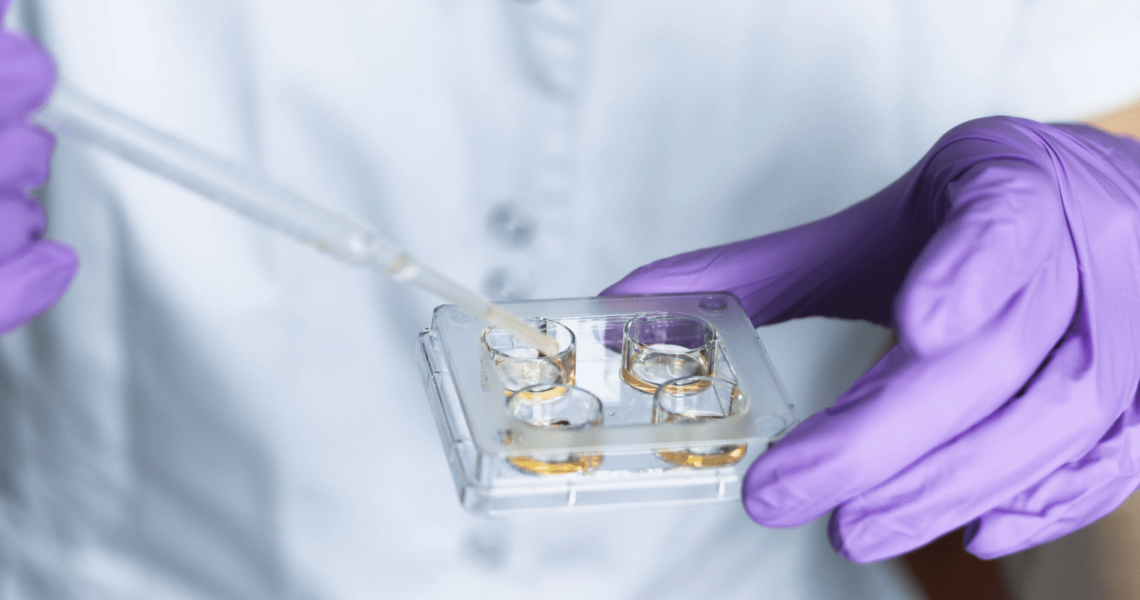An embryo transfer is the first step of in vitro fertilization (IVF). Embryo transfer involves the fertilization of eggs outside the body and the transfer of the embryos into the uterus to achieve a pregnancy. Preparing for embryo transfer is a crucial step in the journey of assisted reproductive technology (ART). Proper preparation is essential to maximize the chances of a successful pregnancy. In this blog, we will explore the steps to prepare for embryo transfer, covering various aspects to ensure a smooth and successful procedure.
Indications for Embryo Transfer

Embryo transfer is a critical procedure in the field of reproductive medicine, typically recommended for various conditions that hinder natural conception or pose risks during pregnancy. Common indications for embryo transfer include:
Infertility: When couples struggle to conceive due to factors such as male or female infertility, embryo transfer can help by placing healthy embryos into the woman’s uterus.
Recurrent Pregnancy Loss: For individuals experiencing multiple miscarriages, embryo transfer may increase the chances of a successful pregnancy by selecting the healthiest embryos.
Medical Conditions: Certain medical conditions, such as uterine abnormalities or previous surgeries, can affect a woman’s ability to conceive or maintain a pregnancy. Embryo transfer can overcome these obstacles.
Single Parent: Embryo transfer allows women to have biological children by using donor sperm.
Age-Related Fertility Decline: As women age, their fertility decreases. Embryo transfer with younger, healthier embryos can improve the chances of a successful pregnancy in older women.
Preparation for Embryo Transfer

Preparing for embryo transfer involves a combination of physical, emotional, and logistical considerations. Here are the steps you need to take to get ready for an embryo transfer:
Consultation and Planning: Start your preparation by choosing a reputable fertility clinic or ART centre having experienced professionals. Schedule a consultation with a fertility specialist to discuss your individual situation and treatment plan. The specialist will review your medical history and assess any potential factors affecting fertility.
Preparing your Body: Begin adopting a healthy lifestyle by eating a balanced diet, exercising regularly, and avoiding alcohol and smoking. Follow your doctor’s advice on taking specific prenatal vitamins and supplements, such as folic acid, to support pregnancy. Comply with prescribed medications, such as hormonal injections, to prepare the uterine lining for embryo implantation.
Synchronization of Cycles: If you are using a donor egg or sperm, ensure synchronization of cycles with the donor. Take hormonal medications as per your doctor’s instructions to align your menstrual cycle with the embryo’s development.
Psychological Readiness: Consider seeking counselling or psychological support to manage the emotional stress associated with fertility treatments. Lean on your support network, including friends and family, to provide emotional assistance during this process.
Pretransfer Tests: Undergoing an ultrasound to evaluate the uterine lining’s thickness and structure and blood tests may be required to check hormone levels and overall health before proceeding.
Lifestyle Adjustments: Practice stress reduction techniques such as yoga, meditation, or deep breathing exercises to help relax your body and mind. Consider adjusting your work schedule to accommodate medical appointments and potential rest periods after the transfer.
Pretransfer Instructions: Stay well hydrated in the days leading up to the embryo transfer. Avoid or limit caffeine and alcohol consumption. Refrain from sexual activity a few days before the embryo transfer. Maintain good personal hygiene to prevent infections and wear loose, comfortable clothing on the day of the transfer. Make sure you have reliable transportation to and from the clinic on the day of the transfer. Consider having a companion accompany you for support and assistance.
Understanding the Procedure: Take time to understand the embryo transfer procedure, what to expect, and any potential risks or complications involved. Ask your doctor any questions or concerns you may have about the process.
The day of the Embryo Transfer: Arrive at the clinic on time, allowing for any necessary paperwork and preparation. Listen carefully to the medical team’s instructions and explanations of the procedure.
Post Transfer Care

Plan to rest for the remainder of the day following the transfer. Avoid strenuous activities and lifting heavy objects. Continue any prescribed medications and follow-up appointments. The two-week waiting period after the transfer can be challenging. Stay patient and avoid taking home pregnancy tests prematurely. Follow-up appointments to check for pregnancy are essential during this phase.
To summarize briefly, embryo transfer is a versatile and effective method for overcoming various reproductive challenges, enabling individuals and couples to achieve their dream of parenthood. With proper planning and working closely with your fertility specialist, you can increase your chances of a successful embryo transfer and, ultimately, a healthy pregnancy.
NU Fertility Hospitals in Bangalore, India is renowned as one of India’s premier infertility centres, excelling in embryo transfers. With cutting-edge technology, a highly skilled medical team, and a strong track record of successful pregnancies, it stands out as the first choice of individuals and couples seeking advanced reproductive solutions.
References:
- Embryo Transfer. American Pregnancy Association.https://fertility.nm.org/ovulation-induction.html.
- Embryo Transfer. Cambridge IVF. https://www.stanfordchildrens.org/en/service/fertility-and-reproductive-health/ovulation-induction.
- Embryo Transfer. Stanford Medicine. https://www.ucsfhealth.org/education/ovulation- induction.
Author: Dr. Sneha J



